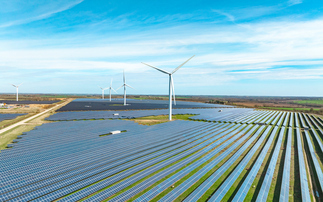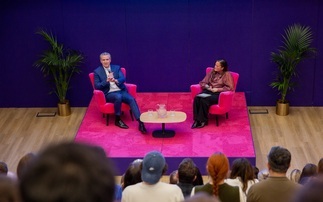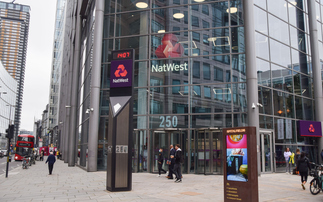Virtual reality experience will give city planners a 'child's eye view' of urban environments
Arup has teamed up with children's charity the Bernard van Leer Foundation to help designers, planners, policymakers, and development agencies improve the lives of young children in cities, informal settlements and refugee camps.
Under the partnership announced on Wednesday, the two organisations said they hoped to combine expertise in design, planning and early childhood development to create child-friendly initiatives in urban environments.
To kick off the project, they plan to publish a guide in 2020 for designers, planners, city authorities, and development agencies, looking at the challenges and aspirations of young children, care-givers, and pregnant women.
Engineering giant Arup has also developed a new virtual reality (VR) tool as part of the initiative which it said enables users to experience "a living, breathing environment from a child's perspective at 95cm tall, the average height of a healthy three-year old".
The VR tool is designed to raise awareness of the common challenges faced by young children in cities, to help aid city planners in developing child-friendly policies, explained Arup's global cities leader Jerome Frost.
"Places designed for urban childhoods are the bellwethers for healthy cities," he said. "Despite the importance of early years to our personal and social development the experience of 0-5-year olds has largely been ignored in the design of our cities. But if we design and plan from their perspective, 95cm off the ground, the environments we create can include and bring together people of all ages."
Michael Feigelson, executive director at the Bernard van Leer Foundation, explained that planning and design decisions have a "huge impact" on babies, toddlers and their carers that can last for the rest of their lives.
"We're excited to continue to scale our work to change the way families with young children live, play, interact and move through cities by partnering with Arup, a global thought leader and trusted partner to cities around the world," he said.
The partnership is the latest move from the business community targeting childhood development and inclusive education, which are a key pillar of the UN's Sustainable Development Goals and are specifically addressed through SDG4.
Other efforts to achieve SDG4, which targets 'quality education for all', hope to develop a more sustainable education system and boost the circular economy at the same time.
Last month a new UK website - reuse4education - launched enabling schools and other educational institutions to buy, sell, swap, and loan learning equipment, to cut down on both waste and costs.
Dubbed as "like eBay, but better", the website allows for the sale and purchase of anything from photocopiers and PE equipment to musical instruments and books, according to its developers.
The service was created by Mark Abrahams, who is also the CEO of Recycle Your Cycle, a programme run in partnership with HM Prison Service that sees bikes and vacuum cleaners refurbished by inmates.
"Whether you need a new set of French textbooks or stacks of old classroom chairs are taking up valuable space in your school hall, you can add them to reuse4education, the only site of its kind for the education sector, and we are confident that a solution will be found," said Abrahams. "We know there is a need in the UK for this service, but we also hope reuse4education will help those studying in developing countries where resources are scarce but the passion for learning is alive and kicking."









